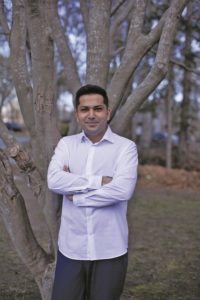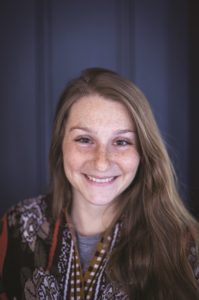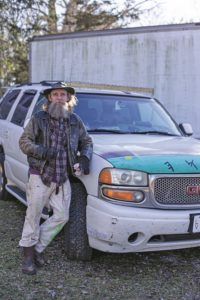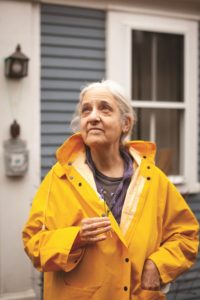The spring season connects us with the light that we were so craving during the dark winter days. So, too, do this April’s holidays — Easter, Passover, and Ramadan — give us a sense of new things coming our way. Over the past few weeks, camera in hand, I sought out people from different backgrounds who hold different religious beliefs, asking them this question: “Where do you find hope in difficult moments in your life?” Here are some excerpts from those conversations. —Agata Storer
Mohammad Bashiry, Hyannis
I am from Afghanistan. I came to Cape Cod from a camp in New Mexico on Oct. 3, 2021. When I first came here, it was hard for me. Everything was different.

When I came, a nice family took care of us. They were very warm and welcoming, so I liked Cape Cod. Now I am more familiar with the culture, with the people here, and luckily I have work.
I had to leave Afghanistan because I was working with Americans for the past 10 years.
At the time when the Taliban took over, my wife was pregnant and was visiting her family in France. When the situation got worse, I said, “You better stay in France.” Although she wanted to have the baby in Afghanistan, my son — fortunately or unfortunately — was born in France. I am still trying to get them here.
We Muslims believe in Allah, our creator, so when it’s hard I am praying for Allah to help me.
Sometimes when people can’t do anything, they should go to their creator. My creator and everybody’s creator is Allah, so I am asking Allah to make it work with my wife and son to bring them here. This is a big, big hope of mine.
It is Ramadan now, when Muslims are fasting for one month, and it gives you a big energy, it refreshes your faith.
Nowadays I am a little bit hopeful for the future about everything.
Natalia Bonfini, Eastham
I come from an Italian family, so we always had Easter Sunday dinner with everyone: my grandparents, my aunts, uncles. It was big — Easter is really important to celebrate in Italian culture.

We still come together. It’s always something to look forward to. It makes me feel like I am a kid again, which always feels good. As a kid, you have endless hope.
I think hope is a driving force — to reach your dream or get out of any rut that you might be in. Even if you don’t reach your goals at the end of the day or get to the place where everything is OK, hope got you somewhere. It just helps you take the first step.
There were very few times as a musician where I’ve been the “number one.” But little lights of hope, like maybe I write a song that I am really proud of, or I sell 10 tickets to a show, encourage me to keep pursuing my dreams as a musician.
Having hope that one day I could be where I want to be keeps pushing me.
John Patrick Love, Provincetown
I find hope in Yahusha. He came in, lived it right, died for all of us, and that is the only hope if you really think about it, his salvation.

Yahusha loves us, you know. We have names, and he has a name, and it’s this one on the back of my jacket. It’s not modern Hebrew, it’s paleo-Hebrew. It’s only four letters.
There have been tons of situations when I felt he gave me hope. One was way down in Georgia, when I was 26. I was going 150 and sliding sideways in front of this Ford pickup truck coming this way and going 55. I said, “Don’t let me die,” and there was a lot of hope in that statement, and I didn’t die.
I got beat up a little bit, but he didn’t let me die because I had stuff to do here, you know. To declare to people that they still have hope.
My name is John Patrick Love and my wife’s name is Jerry Nicole Joy and our children have both our names: Love and Joy.
Harriet Korim, Wellfleet
I am a child of two immigrants. My mother grew up in a shtetl in Lithuania, and my father grew up in Rohatyn, a bigger town not far from Lviv, now in Ukraine.
My mother met my father on the beach in Tel Aviv and they got married a day or two after Kristallnacht — talk about hope. They came here that same year, 1938.

My father lost a lot of family in the Holocaust. After my mother’s death, in 1998, he decided to go to Ukraine with a group of people from his town who wanted to lay a plaque where people had never really been prayed over or honored. We went with him, my daughter and I, and it was an amazing experience.
I am not a complete optimist, but I try to find sparks of hope because it’s a survival mechanism.
There was a girl there, it was her 16th birthday, and she offered to translate for us. It was so difficult to be there, saying kaddish over those bones that had been waiting 50 years.
So, in this situation one of the sparks of hope was this young woman, Ganna. She invited us to her house. She wanted to give us a present and she didn’t have anything. But she took us to the banks of the little river Gnila Lipa that my father remembered from his childhood.
I love Passover. It’s my favorite holiday, an at-home festival in which what really matters is connecting with history and connecting with each other.



